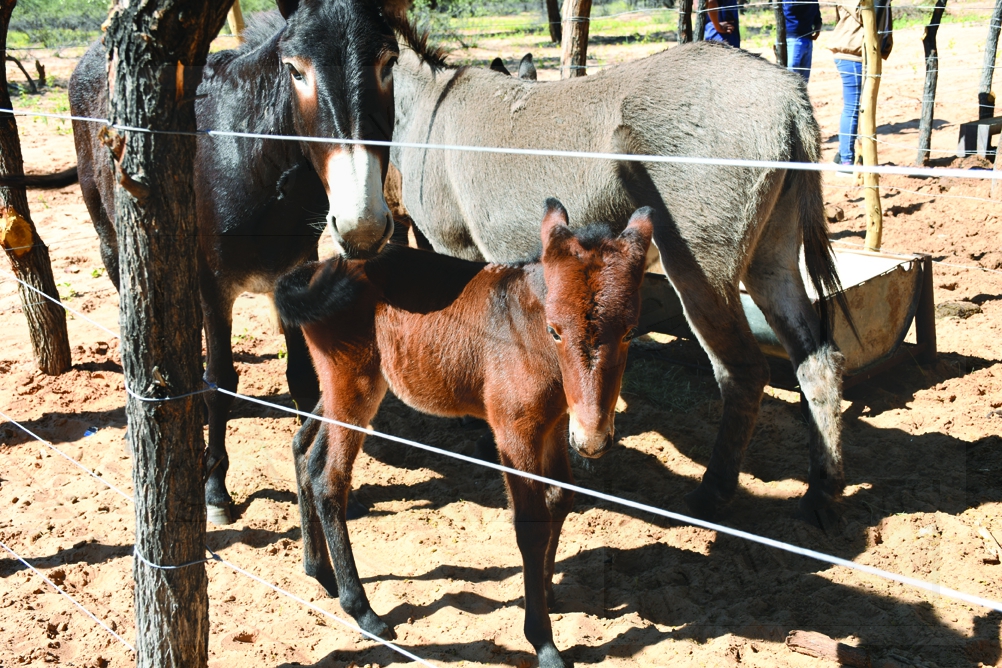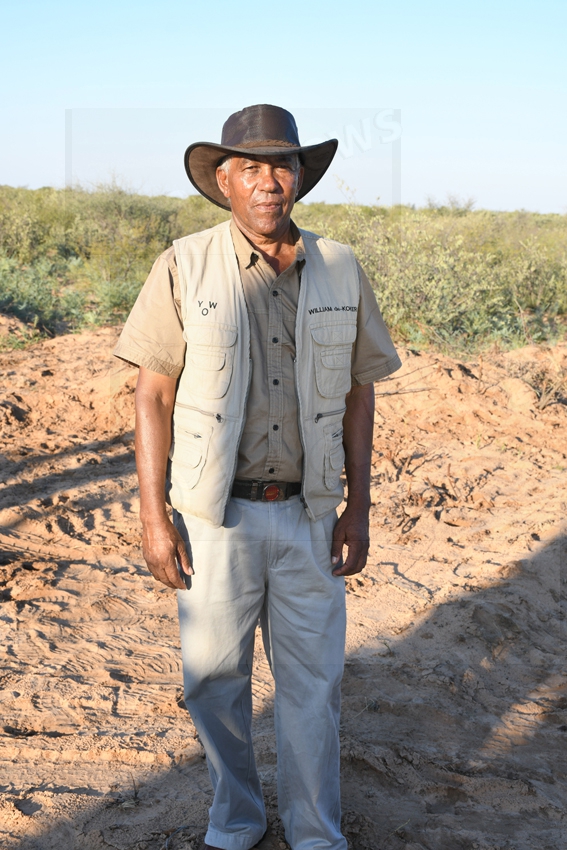William Dekoker A phenomenal mules hinnies breeder
16 Oct 2024
After years of rearing cattle, goats, donkeys as well as horses, Mr William Dekoker is now following in his grandfather’s footsteps by breeding mules and hinnies.
At 62-years-old, the Tsabong native has become a successful breeder of these unique hybrids which he finds both profitable and practical.
Mr Dekoker explains that breeding mules - offspring of a female horse (mare) and a male donkey (jack) - and hinnies - offspring of a male horse (stallion) and a female donkey (jenny) - has proven to be a rewarding venture. He learnt the intricacies of this trade from his late father who was also a breeder in Tsabong several years ago.
For a successful mating between a horse and a donkey, Mr Dekoker notes that they must be confined together for a specific period.
He reckons that while mules, often referred to as beasts of burden, are stronger and faster than hinnies, both are valuable sources of drought power.
Hinnies, known for their calm demeanor, are particularly suited for use by women, inheriting the traits of donkeys while mules tend to inherit the traits of horses. Unlike horses, both hinnies and mules are less susceptible to diseases such as African horse sickness. However, both are generally sterile.
The price for a trained or tamed mule or hinny is P6 500 whereas an untrained one costs P4 500.
He notes that hinnies are preferred by many buyers due to their gentle nature.
As age catches up with him, Mr Dekoker is passing his knowledge on to his sons, teaching them the art of breeding and taming mules and hinnies to ensure that this valuable knowledge is preserved for posterity.
Mr Dekoker’s farming journey spans decades, beginning in his childhood.
After completing his primary school education at Dutlwe Primary School in 1975, he returned home with nine goats, marking the beginning of his livestock farming career.
“I bought these goats with pocket money savings and reared them at the home of a man I was staying with,” he recalls.
His journey was not without challenges.
After working as a carpenter in Gaborone and Jwaneng, where he experienced significant losses due to mortality and predators, Mr Dekoker refused to give up.
“In 1981, I worked for Ngami Construction, building Jwaneng township, then joined BKT Consortium in Jwaneng, and was later recruited by Marapo Construction to maintain Ambassadors’ and High Commissioners’ structures. In 1989, I moved to Stable Builders Construction and eventually registered my own company,” he recounts.
When asked where he acquired his diverse skills, Mr Dekoker attributes much of his knowledge to his father, who was jack-of-all-trades.
In 1996, Mr Dekoker decided to focus entirely on farming and introduced cattle and horses into his operations.
His hard work paid off and he once bought a vehicle after supplying the then Financial Assistance Policy (FAP) with 366 goats. Over the years, the proceeds from his farming endeavours have contributed to a syndicate borehole and the purchase of several ploughing fields.
He also has a passion for horse racing and has transformed some of his fields into a horse racing track in Takatokwane, complete with sculptures of jockeys.
Mr Dekoker has started a horse racing project aimed at promoting the Tswana breed in Takatokwane, continuing to make significant contributions to both agriculture and local culture. ENDS
Source : BOPA
Author : Mothusi Galekhutle
Location : MATLAPANENG
Event : FEATURE
Date : 16 Oct 2024







